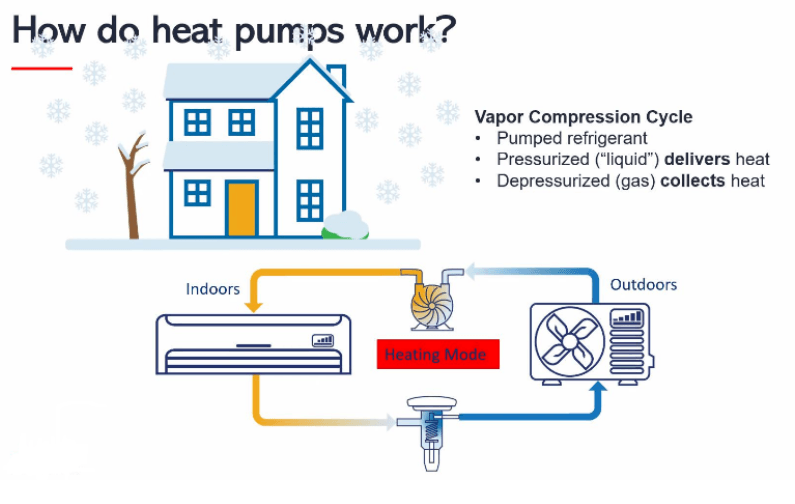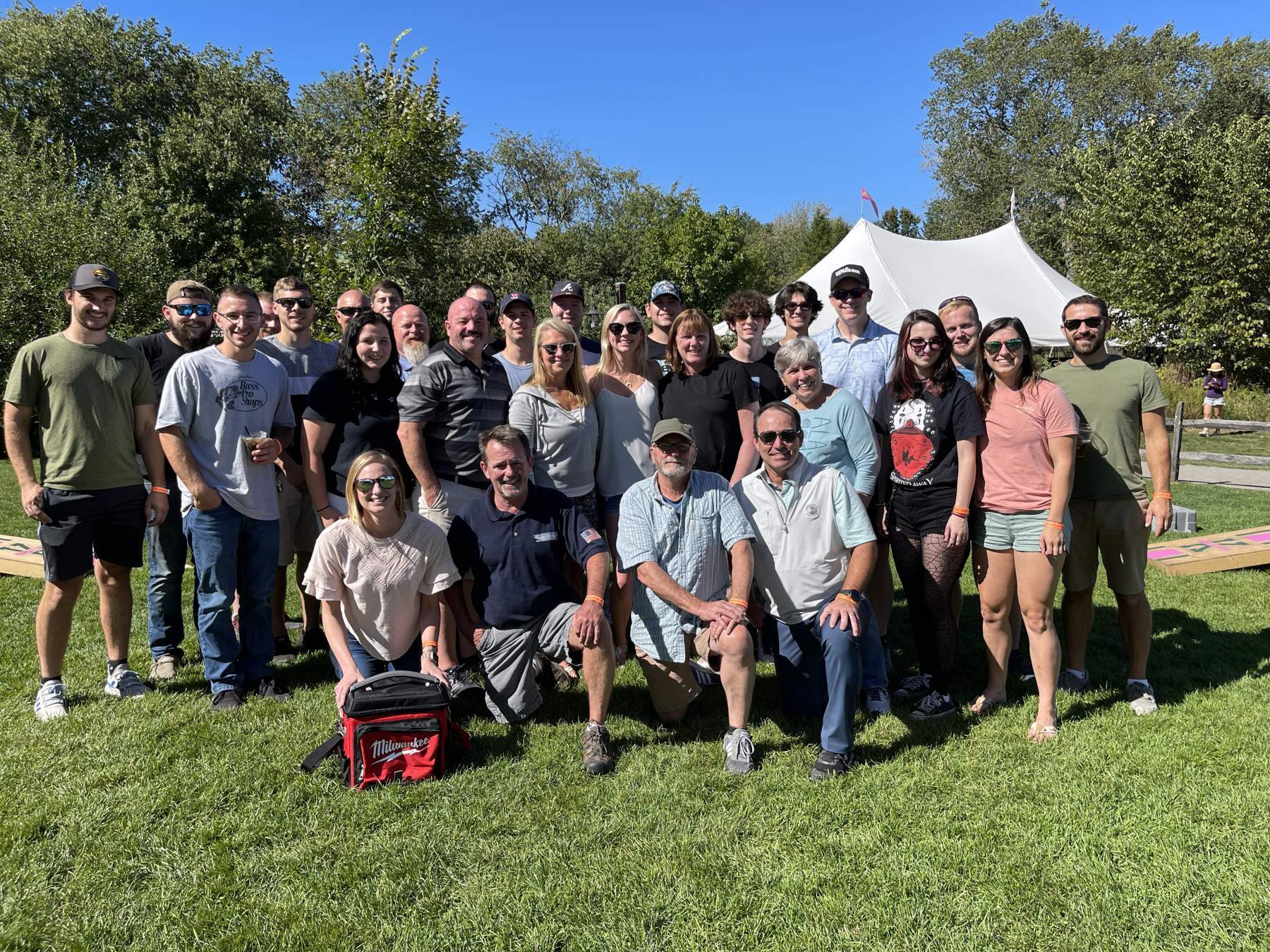In the past heat pumps were designed to maintain a comfortable temperature inside your home for warmer climates but today’s heat pump technology has advanced beyond conventional heat pumps and there is now a cold climate heat pump that is designed to work in -13 degrees Fahrenheit. This is great news for us in the Northeast since heat pumps are also designed to decrease your utility bills and reduce your carbon footprint.
Cold Climate Heat Pumps are designed for more than just summer cooling and are also a great solution for spaces that lack ductwork like garages, lofts or attics. Heat pumps operate differently than traditional heating & cooling systems. Just as your heart beats faster when you exercise, a heat pump’s new compressor technology keeps running in the background, adjusting speeds and capacity as needed to meet the set temperature. This method of operation reduces consumption by only using the exact amount of energy required to maximize comfort and produces zero emissions.
Heat pumps do not generate heat, they move it. They transfer heat energy from the inside air to the outside or vice versa. In cooling mode, heat energy from inside your home is absorbed by the system’s refrigerant and transferred to the outdoor air. In heating mode, the refrigerant cycle is reversed. The system extracts heat from the outdoor air and transfers it inside your home. This process is cleaner and safer for the planet and produces zero emissions.
Cold climate heat pumps do not require supplemental heat since they are designed to scroll up to meet demand when it’s very cold. When deciding on the heat pump design that will work best for your home, there are a few concepts that are important to understand. Comfort is more than just air temperature. A room with a comfortable air temperature could still feel cold due to radiant losses through windows and drafts. Understanding each room in your home and identifying drafts and rooms with many windows will help you to understand the design of your heat pump system. An HVAC Technician will also have to calculate the load of your home to see how much heat is needed. Your home’s load is made up of various components like insulation, window quality and location, home orientation and more factors that affect heat transfer and air flow. Bigger does not always mean better. An oversized system can lead to short cycling which is when the system turns on and off repeatedly. In order to take advantage of lower utility bills, it is important to understand your home’s load to install the correct size system. A mismatched system can lead to higher utility bills during mild conditions and less temperature control.








